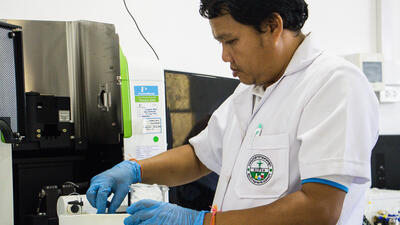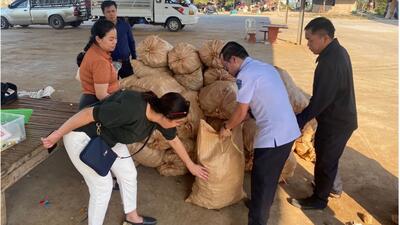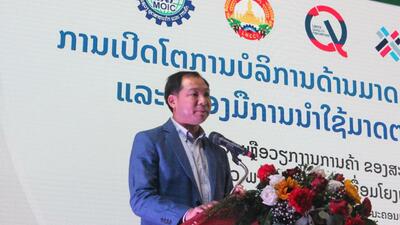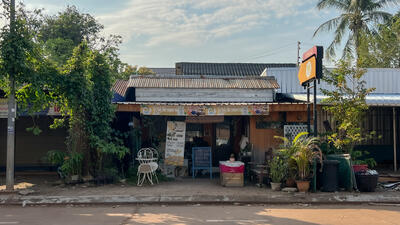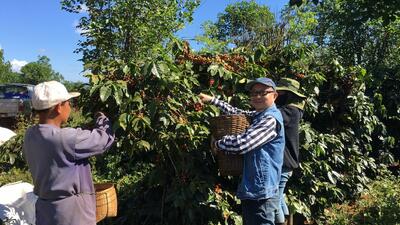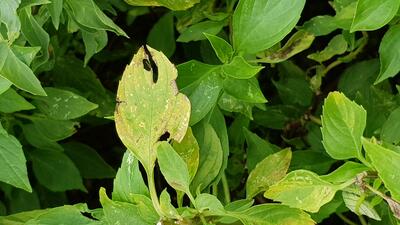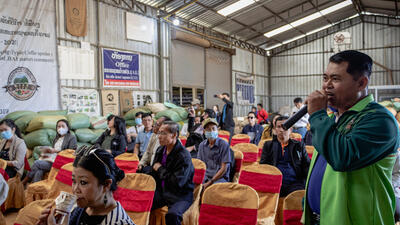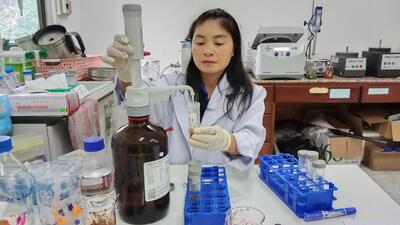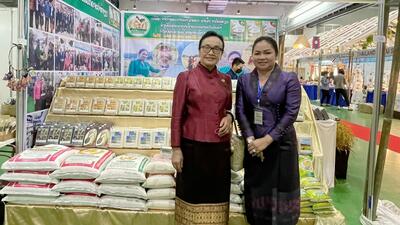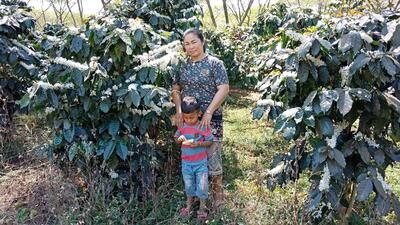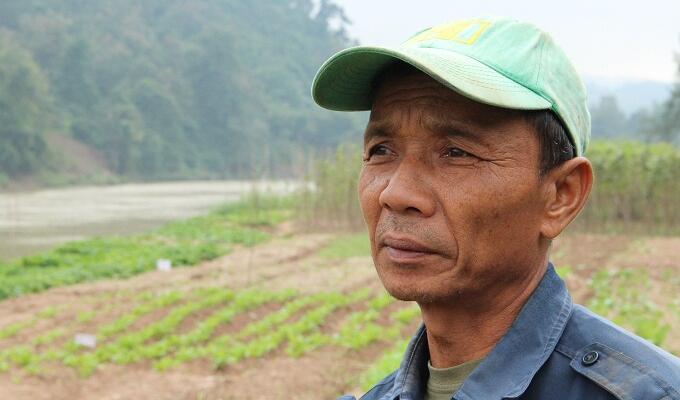
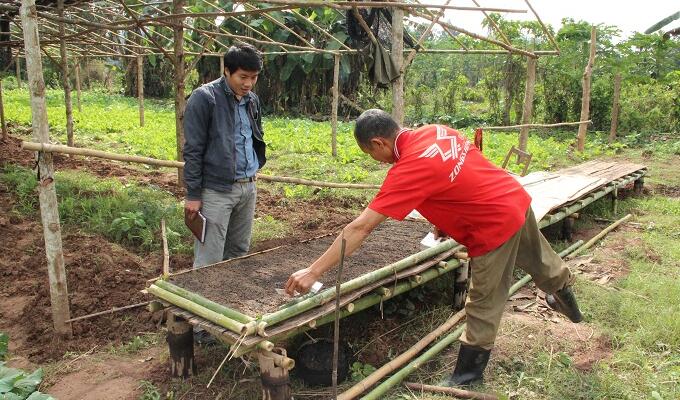
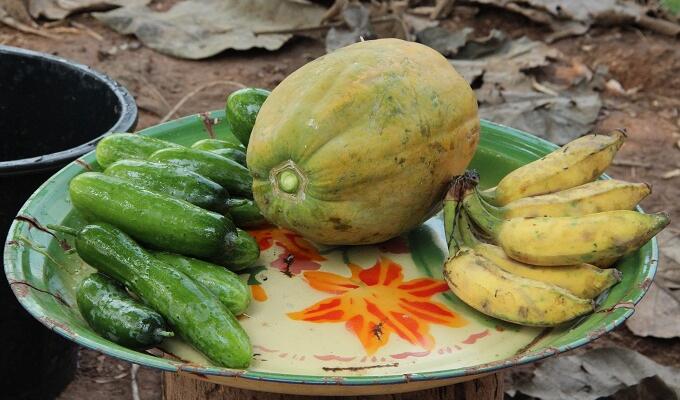
Going clean and organic boosts the income of rural farmers in Lao PDR
(LONG O, LAO PDR) -- For the first time, Bounlap Soulinthone from the remote Laotian village of Long O is selling his produce of vegetables to restaurant and hotels in the provincial capital of Luang Prabang, earning a 60% premium compared to what he could fetch in the past. In order for Bounlap and his fellow villagers to sustainably increase their income, however, they need to go fully organic, increase production quantities and ensure reliable supply.
As part of an UN initiative, ITC is teaching 100 farmers skills and techniques to produce clean and organic vegetables. ‘After having joined the programme, I could reduce my production costs by not having to buy chemical pesticides. I can now also ask for higher prices at the market as they are fresh and clean. Consumers like that,’ said Bounlap who lives a 30-minute drive away from Luang Prabang.
The province is one of the country’s major tourist destinations, a UNESCO World Heritage Site that attracts more than 300,000 visitors each year. Sustainable tourism is part of the government’s strategy to improve living standards. Linking trade to the country’s thriving tourism industry is key to lifting Lao PDR out of poverty, according to the country’s development plan.
The programme, funded by Switzerland’s State Secretariat for Economic Affairs (SECO), has already resulted in a 60% increase in farming incomes to an average of US$ 2,125 per farmer family in 2013, said Somsack Bounanouvong, who oversees the project at the Provincial Agriculture and Forestry Office.
The trainings conducted by ITC have introduced 30 new varieties of clean vegetables for continuous supply to restaurants and local wholesalers. As part of the project a twice-weekly organic market was also established, and it is here that buyers from restaurants and hotels come, along with middle class shoppers.
‘Before, I used to sell my products via traders only. They used to push the prices down. With the organic market, I can now sell my products directly. It would be great to even get to sell three times a week,’ Bounlap said.
There is, however, a long way to go before the farmers can become sustainable suppliers to the growing tourism industry. So far, the farmers have been able to increase their supply to 1.4 tonnes per market day in 2013 compared to 900 kg per market day before the project started. However, double that would be necessary to cover the need for vegetables for Luang Prabang’s tourism sector, according to Somsack. ‘This will be achieved by integrating 60 more farmers from four additional villages in the project in 2014,’ he said.
Somsack, who will continue to work with the farmers after the ITC project ends in September 2014, said that the key to success lies in upgrading production mechanisms. ‘Once the quantity and quality have reached a certain level, the farmers will be able to provide the right quantity for the tourism sector. We can then establish continuous contracts with loyal buyers. We are also planning revolving funds for the farmers and to get the organic vegetables certified,’ he said.
In order to link the farmers to local restaurants and hotels, ITC has conducted a field visit trip and invited chefs and managers of establishments in the Luang Prabang area catering to the tourist trade to visit the farmers and discuss their requirements.
‘Before, all the farmers were doing what they wanted the way they wanted. There was no structure, no goal. After joining the project, we received technical support and training. We produce now more professionally and have direct access to the market,’ Bounlap said.
‘Reorganizing farm management, adopting new farming practises, and introducing new varieties of vegetables take time and challenges like rain and flood protection remain to be solved,’ said Govind Venuprasad, ITC’s project manager. The greatest benefits accruing from the programme are two fold, he explained: local farmers are selling their produce to establishments that service the tourist trade, thereby making them important stakeholders in the local economy; vegetables that were previously imported are new grown and sourced locally. ‘These two factors positively contribute to improving local livelihoods and reducing the carbon-footprint that air-freight accrues’, he said.
ITC will continue to support the farmers and the provincial government’s agriculture officers find ways to link the farmers to business opportunities and increase their income. The best performing farmers have been selected to visit Thailand in 2014 to learn more about supplying to hotel and restaurant chains.
Launched in May 2011, the project falls under the UN Chief Executives Board Inter-Agency Cluster on Trade and Productive Capacity. The project moves into its second phase in October 2014.





